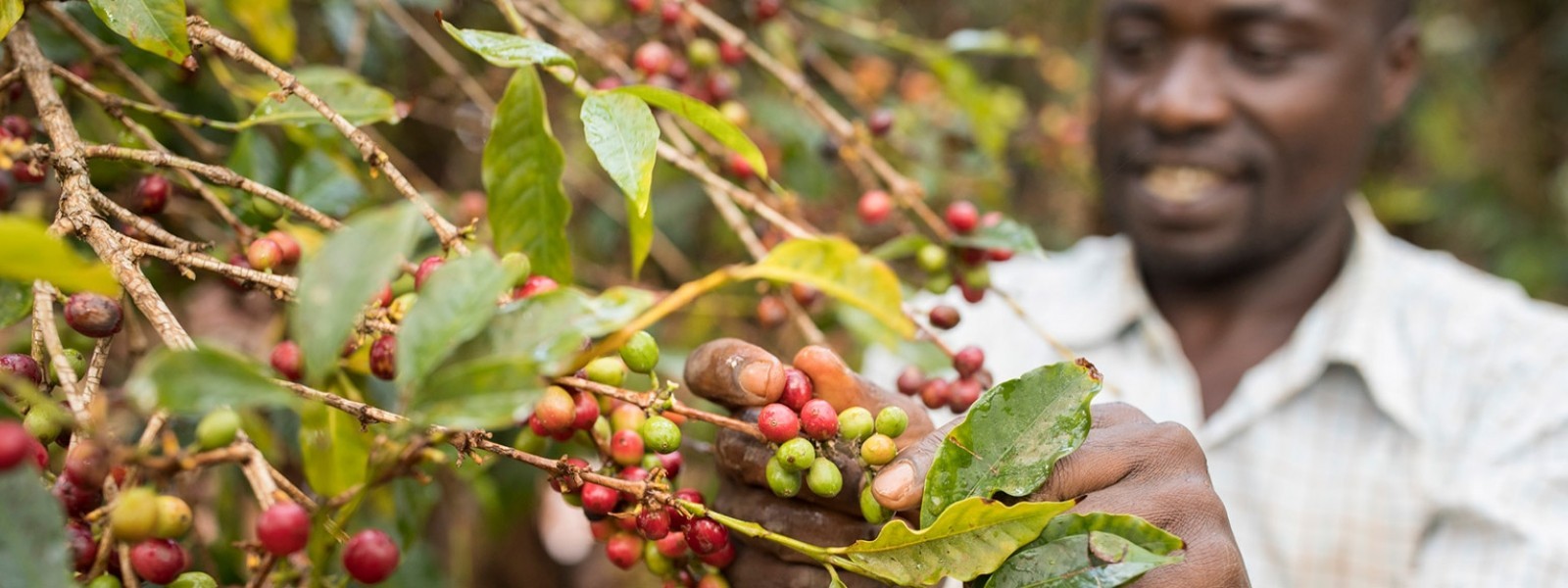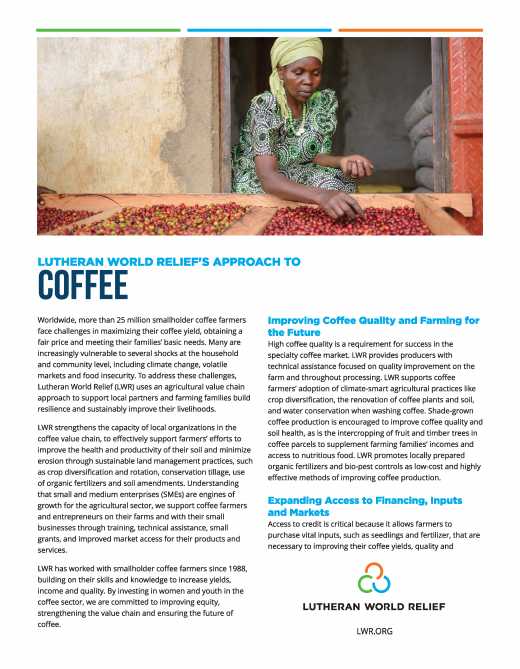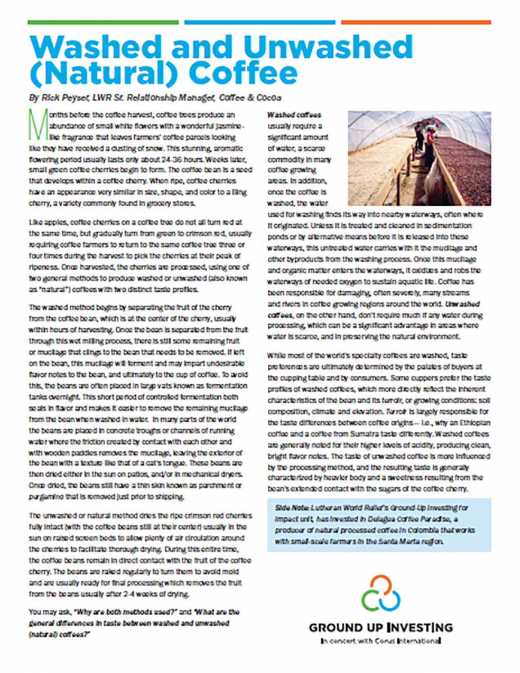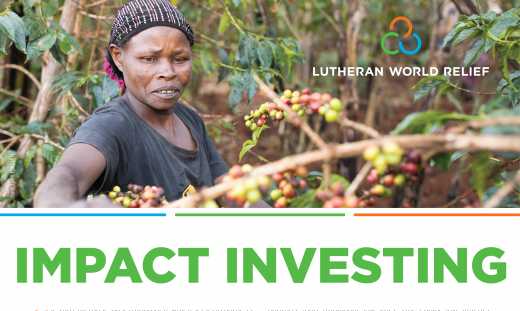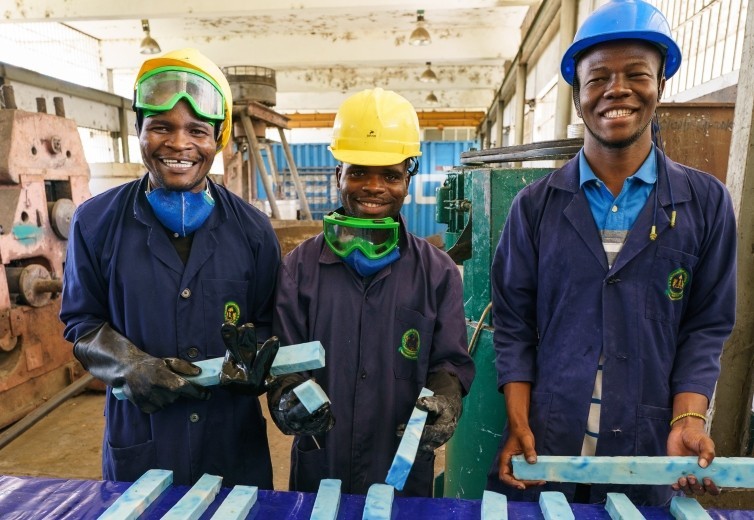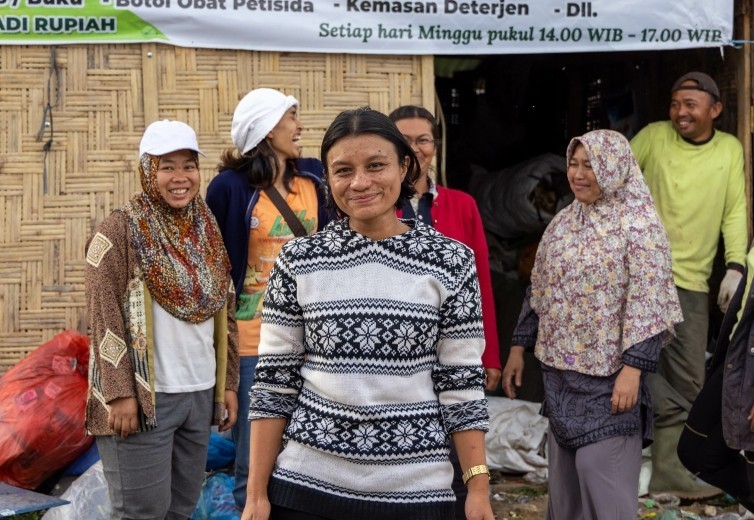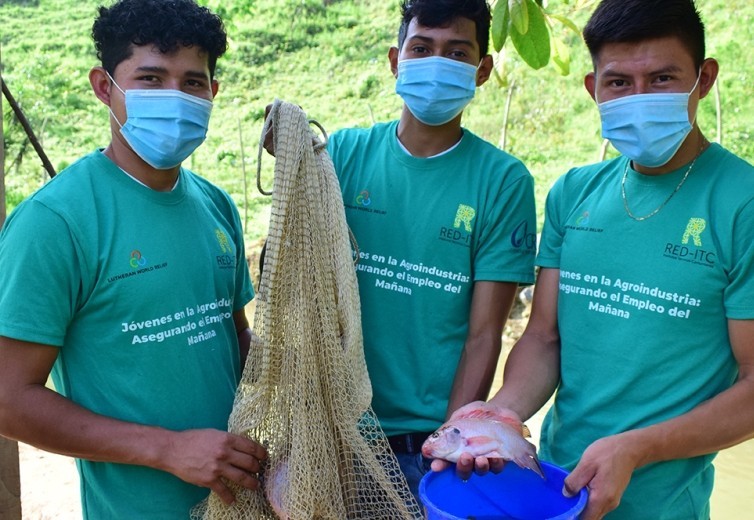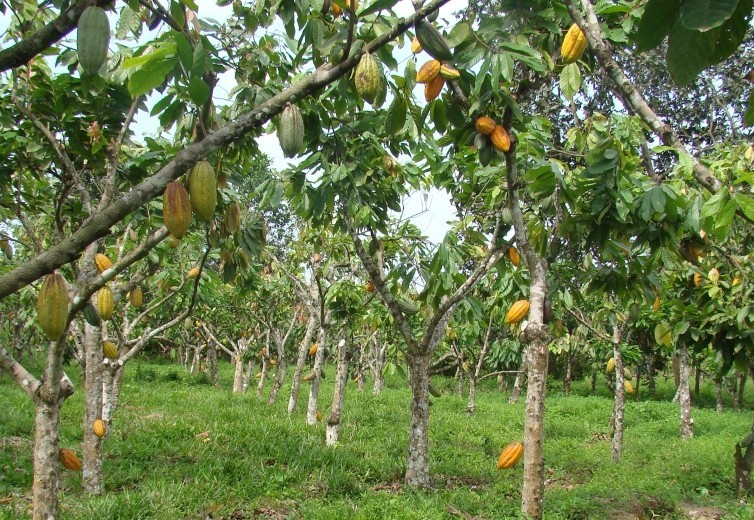Lutheran World Relief’s Approach to Coffee
Worldwide, more than 25 million smallholder coffee farmers face challenges in maximizing their coffee yield, obtaining a fair price and meeting their families’ basic needs. Many are increasingly vulnerable to several shocks at the household and community level, including changing climate, volatile markets and food insecurity. To address these challenges, Lutheran World Relief uses an agricultural value chain approach to support local partners and farming families build resilience and sustainably improve their livelihoods.
Lutheran World Relief strengthens the capacity of local organizations in the coffee value chain, to effectively support farmers’ efforts to improve the health and productivity of their soil and minimize erosion through sustainable land management practices, such as crop diversification and rotation, conservation tillage, use of organic fertilizers and soil amendments. Understanding that small and medium enterprises (SMEs) are engines of growth for the agricultural sector, we support coffee farmers and entrepreneurs on their farms and with their small businesses through training, technical assistance, small grants, and improved market access for their products and services.
Lutheran World Relief has worked with smallholder coffee farmers since 1988, building on their skills and knowledge to increase yields, income and quality. Lutheran World Relief promotes the adoption of agroforestry production systems to build sustainable livelihoods for coffee farmers globally. With careful planning, trees grown in agroforestry systems can provide food, fodder, shade, soil and water protection and conservation, as well as income for farmers, simultaneously increasing food security and overall farm resilience and stability. We are committed to improving agricultural livelihoods, strengthening the value chain and ensuring the future of coffee.
Improving Coffee Quality and Farming for the Future
Sustained high coffee quality is a requirement for success in the specialty coffee market. Lutheran World Relief provides producers with technical assistance focused on quality improvement on the farm and throughout processing. Lutheran World Relief supports coffee farmers’ adoption of regenerative agricultural practices like crop diversification, the renovation of coffee plants and soil, and water conservation when washing coffee. Shade-grown coffee production is encouraged to improve coffee quality and soil health, as is the intercropping of fruit and timber trees in coffee parcels to supplement farming families’ incomes and access to nutritious food. Lutheran World Relief promotes locally prepared organic fertilizers and bio-pest controls as low-cost and highly effective methods of improving coffee production.
Lutheran World Relief combines the effectiveness of community promoters with the reach of smartphone technology to provide many coffee farmers with access to timely information on weather, best growing practices and market prices so they can make the best decisions that affect the quality and price of their product on the market.
Expanding Access to Financing, Inputs and Markets
Access to credit is critical because it allows farmers to purchase vital inputs, such as seedlings and fertilizer, that are necessary to improving their coffee yields, quality and earnings. Lutheran World Relief facilitates pre-harvest financing by linking cooperatives to local and national financial institutions. In many cases, cooperatives that access credit can on-lend these resources to their member farmers, providing working capital for the upcoming season as well as reinforcing loyalty and value of being a member of the farmer cooperative. It strengthens the cooperatives’ financial management systems, thereby facilitating access to credit and helping farmers secure loans to improve their productivity.
Coffee farmers also need reliable access to markets where they can sell their coffee at a fair price. Lutheran World Relief equips cooperatives with better information, improved bargaining power and stronger logistics as they connect farmers with markets for both conventional and certified coffees.
In Practice
With funding from Global Affairs Canada and in a partnership led by Mennonite Economic Development Associates of Canada (MEDA), OCIDA project in the Dry Corridor of Honduras. The OCIDA project is a five-year comprehensive initiative that promotes sustainable development in Honduras’ coffee, cocoa and horticulture sectors. OCIDA aims to improve the lives of 7,000 producers and entrepreneurs in the departments of Copán, Santa Bárbara, Ocotepeque, Lempira, Intibucá, and La Paz. The project focuses on supporting farmers, especially women and young adults, in diversifying their agricultural practices and promoting agricultural circularity, a farming strategy that aims to minimize waste and maximize resource efficiency. This is achieved through technical assistance and training in agroforestry, post-harvest handling, quality standards, and other value-addition services.
Lutheran World Relief worked in rural Honduras to address gaps in youth employment opportunities in the coffee sector through strengthening their transferable skills as technical advisers, rural promoters and coffee quality experts according to market demand; creating new job opportunities for trained youth; and facilitating opportunities for youth entrepreneurs to realize their potential through new agri-business ventures. Lutheran World Relief collaborated with local partner El Instituto Hondureño del Café (IHCAFE) to build young people’s skills in coffee production and post-harvest handling practices. Participants learned about improved cultivation techniques and how to apply technology to production, such as IHCAFE’s digital app, Café Móvil, which provided instant access to an online toolbox of coffee cultivation manuals.
Lutheran World Relief worked to reduce poverty among Arabica coffee farming communities by strengthening the capacities of local companies and farmer organizations in Uganda and increasing opportunities for young adults and women. For local companies, the project supported the development of processing protocols, market access strategies and access to trade-finance. Coffee quality improved from commercial to specialty. Export volumes grew from 40% to 100% of total production, and the number of export destinations increased from 1 to 7. For farmer organizations, the project increased access to extension services and prioritized improving coffee quality by centralizing processing at community-based, micro-washing stations and developing management systems and staff competencies to strengthen operations. With the creation and expansion of Village Savings and Loan Association (VSLAs), farmers increased their access to credit with women in particular gaining financial independence and the ability to pay critical medical and education expenses as a result of their VSLA membership.
Lutheran World Relief worked with Farmer Brothers Coffee and local supply chain partners, COSA and Aldea Global, to create a more resilient coffee supply chain in Jinotega, Nicaragua. The project ensured the continuity of the supply of high-quality coffee while promoting environmental sustainability and improved socioeconomic conditions for farmers within the company’s supply chain. About 60 young people — ranging in age from early 20's to early 30's — were trained as outreach promoters, a kind of agricultural extension agent, to assist 350 farmers, while engaging youth in the coffee sector to stay involved for the long term.
The Corus Effect
Lutheran World Relief is part of Corus International, an ensemble of global leaders in international development and humanitarian assistance. In addition to Lutheran World Relief, the Corus family of organizations includes global public health agency IMA World Health, U.K.-based technology for development company CGA Technologies, impact investing group Ground Up Investing, and direct trade company Farmers Market Brands.
We operate as permanent partners, integrating expertise, disciplines, approaches and resources to overcome global health challenges, develop productive and stable economies, improve resilience in the face of climate change, and respond to natural disasters and humanitarian crises.
With the support of our family’s diverse set of partners and funding – from multi- and bilateral institutions and foundations to the private sector and individuals – we invest in solutions that are innovative, scalable, holistic and move the needle towards transformational change.


